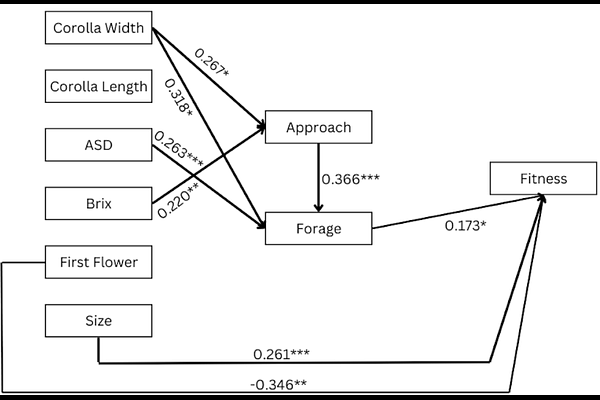A resurrection experiment reveals reduced adaptive potential in a common agricultural weed

A resurrection experiment reveals reduced adaptive potential in a common agricultural weed
Bishop, S. G. D.; Stinchcombe, J. R.; Baucom, R. S.
AbstractAdaptive evolution is critical to population response to anthropogenic global change. Despite research suggesting adaptation commensurate with the rate of contemporary environmental change is possible, mismatches between expected and realized evolution in natural systems are widespread. Using a combination of quantitative genetics and resurrection ecology, we show that covariances among pollination and mating system related traits in the common morning glory (Ipomoea purpurea) constrain the rate of evolution and that such constraints are strengthening over time, dramatically reducing adaptive potential. Pollinator-attracting traits evolved on a rapid time scale of less than ten years, but genetic covariances between traits limited the adaptive rate and evolutionary trajectory of flowering phenology, a trait with widely recognized importance in adapting to climatic shifts.